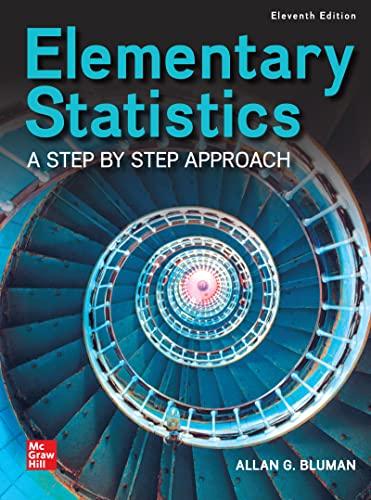Assume you are at a carnival and decide to play one of the games. You spot a
Question:
Assume you are at a carnival and decide to play one of the games. You spot a table where a person is flipping a coin, and since you have an understanding of basic probability, you believe that the odds of winning are in your favor. When you get to the table, you find out that all you have to do is to guess which side of the coin will be facing up after it is tossed. You are assured that the coin is fair, meaning that each of the two sides has an equally likely chance of occurring. You think back about what you learned in your statistics class about probability before you decide what to bet on. Answer the following questions about the coin-tossing game.
1. What is the sample space?
2. What are the possible outcomes?
3. What does the classical approach to probability say about computing probabilities for this type of problem?
You decide to bet on heads, believing that it has a \(50 \%\) chance of coming up. A friend of yours, who had been playing the game for awhile before you got there, tells you that heads has come up the last 9 times in a row. You remember the law of large numbers.
4. What is the law of large numbers, and does it change your thoughts about what will occur on the next toss?
5. What does the empirical approach to probability say about this problem, and could you use it to solve this problem?
6. Can subjective probabilities be used to help solve this problem? Explain.
7. Assume you could win \(\$ 1\) million if you could guess what the results of the next toss will be. What would you bet on? Why?
Step by Step Answer:

Elementary Statistics A Step By Step Approach
ISBN: 9781260360653
11th Edition
Authors: Allan Bluman





